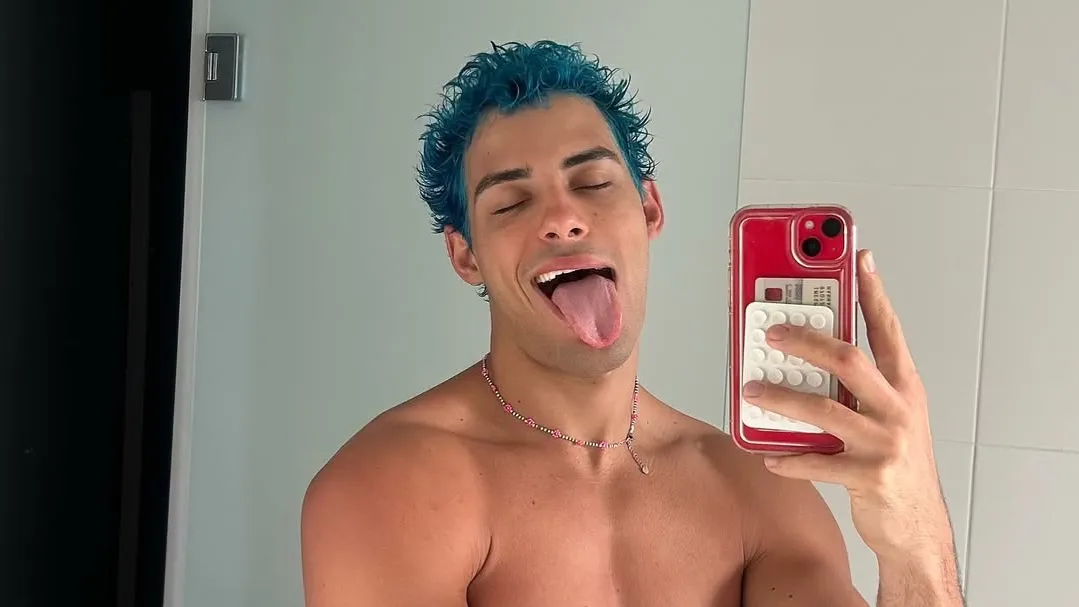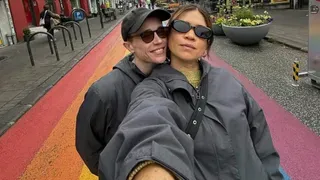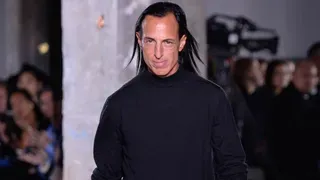October 21, 2013
Chloë Grace Moretz & Julianne Moore Talk 'Carrie'
Fred Topel READ TIME: 8 MIN.
Carrie has been a horror meme for generations. First as Stephen King's debut novel in 1974, followed two years later by Brian DePalma's operatic adaptation (that made a star of Sissy Spacek). In 1999 there was a poorly received sequel, "The Rage," that featured Amy Irving, one of the stars of DePalma film; then in 2002 came a television remake, starring Angela Bettis and Patricia Clarkson in which Carrie lived in the end. (It was meant to be the precursor to a television series that never happened.) And there was also a 1988 floppo Broadway musical, legendary for all the wrong reasons...
This past weekend saw the release of a third film version of King's story of a bullied girl with telekinetic powers, updated to the age of social media, with Chlo� Grace Moretz in the title role and Julianne Moore as her fanatical mother. (This time around when Carrie has her period in the shower, someone with a cell phone records it and uploads it to YouTube.)
"Now she's back, as they like to say in movie ads, in a fine, largely faithful screen remake, directed by Kimberly Peirce that stars Chlo� Grace Moretz as its goddess of gore," wrote Manohla Dargis in reviewing the film in the New York Times. "It's hard to keep a franchise craze down, especially one that can be retrofitted for today's fears."
Peirce, who made her name for directing another film about a bullying - the shattering "Boys Don't Cry" - worked from a script by Lawrence D. Cohen and Roberto Aguirre-Sacasa. Cohen wrote the original screenplay while Aguirre-Sacasa, the out writer of plays, films and comic books, sought to be faithful to King's story while retrofitting it for the mobile age.
Theoretically, "Carrie" could be remade for every generation, because there will always be kids on the outside, feeling like victims. "I think it's an interesting story because it's always relevant," Moretz agreed. "It's such a different era for 'Carrie' to be coming out in because I think with each movie, the shock factor's going away, but you have to keep it relevant and nuanced to the time period. Everyone's dealt with things that Carrie's dealt with, and you will always have a heart for Carrie because she, at the end of the day, is just a na�ve girl, and everyone's had those moments where things just go right over their head. And you're going, 'I know you're all laughing at me, but I don't know why you're laughing at me.' It's an interesting kind of character to play."
As Carrie's mother, Julianne Moore could relate to the film's protagonist from a different angle. A mother of two in real life, Moore found herself mothering Moretz on the set.
"Chlo�'s only a year older than my son so it was very easy for me to relate to her and be with her and talk to her," Moore said. "What was interesting was having an actual adolescent in this part because it had been played before by somebody who was in their mid-20s and there's a real difference between a kid that's 26 or 24 and somebody who is 15. (Moretz was 16 when she made the film while Spacek was 26.)
"I could see that even in the read-through where a lot of the other kids were in their 20s while Chlo� was still very much a kid, and was probably more comfortable being with me than she was with those older kids. It was very sweet. I was her source of comfort and safety."
Moretz has played characters on the other end of the spectrum, the tough talking Hit Girl in "Kick-Ass" and the wise younger sister in "(500) Days of Summer" and, most chillingly, the teen vampire in "Let Me In." As Carrie White, Moretz could open up her more vulnerable side.
"The naivet� I think was my main thing because I have been home-schooled since I was nine years old," Moretz said. "In the scheme of what my friends are accustomed to in every day life, and what I'm accustomed to in every day life, I live a very in a different way than them. I live in a very sheltered bubble. I'm always with my brother, my mom. I always have my little group around me, and I don't interact with tons of other kids my age all the time.
"So I think what I really attach to with Carrie was that she doesn't know that world of teenagers, and it's the one place where I don't feel comfortable because when I'm with a bunch of teenagers, I don't know what I'm doing. This is not my safe zone. I don't know what I'm talking about. I think that's where I really was able to connect with Carrie."
Today we talk about bullying. In the '70s when 'Carrie' was written and when the first film was made, there was no public conversation on the chronic social problem. 'Carrie' was an expression of that. It still is, but now Moore tells her children to do their part to make everyone feel included.
"One of the things I always say to my kids, and this is back to the theme in 'Carrie' too, is that the most dangerous thing for a person to feel is isolated," Moore said. "[I tell them] if you ever see a kid sitting alone, if there's ever a new kid, if there's ever a situation where it seems like somebody is not being involved with something, go talk to them. Go ask them if they want to play. Ask them if they want to sit with you at lunch. Make sure you say hi to the new person. Make sure that person is okay. It's really, really important."
Julianne Moore could have her choice of a far more glamorous role than the frumpy, psychologically-damaged Margaret White; but she was game to enter a glamour-free zone for the film.
"She's kind of a hag, right?" Moore joked. "That's how I looked on the set. I was just so dreadful, no makeup and then all my cuts and bruises on my head and scraggly hair. So one day, we were doing EPK [interviews] and I was made up - my hair was blown out and I had on regular clothes. I walked in and Chlo�'s mom Teri was like, 'Oh my gosh, you're so pretty.' I was like, 'Goddammit.' But you have to let go of that stuff. You absolutely do. I think it's probably worse when you think you look good and you see yourself and you're like, 'Ew.' So at least I knew I looked bad."
At the end of the movie, Carrie is in pretty rough shape. Covered in pig's blood caused by the nasty prank perpetrated by her peers, she storms the prom and the town streets in her bloody prom dress - an iconic image from the DePalma film. The image was so potent that Moretz couldn't take it the first time she saw herself made up as the blood-soaked teen..
"I actually cracked up because it was really funny," Moretz said. "I mean, honestly, the first time we did it, it took two and a half hours to put all the blood on. So I kind of saw Carrie be made in front of my eyes, and we had this bust of my face. They just had my face like laying there all day. So the blood drips, that was a very strategic thing they mapped out in preproduction. It was all transfers. It was a like tattoo transfers. I wish it was a bit more shocking because I saw each transfer go on, and I was like, sticky and tired. But I think that's the moment when I knew I was doing 'Carrie.' I am Carrie, covered in blood."
She also had to remember not to touch her face all day while drenched in sticky fake blood. "There were huge problems with that because I would start peeling it off my skin," Moretz said. "You put them on your body with the water and everything, all over. So we'd do a base of that, and then we'd go over it. We would just get these bottles of blood, different colors of blood and they'd drip them on my body and rub it in with fake smoke and mud, disgusting. In between takes, it was so cold outside, I would run to my car and try and warm up, but then the blood would get hot, and then it would cake onto my skin and get all tacky. And if I put my hand on there and left it for a minute and pulled it off, it would just rip my skin off because it was so sticky. So I had to like stop myself from wanting to just peel it off as it got warm and just covered you in a cakiness of sticky, maple syrup."
"Carrie" is in theaters.







